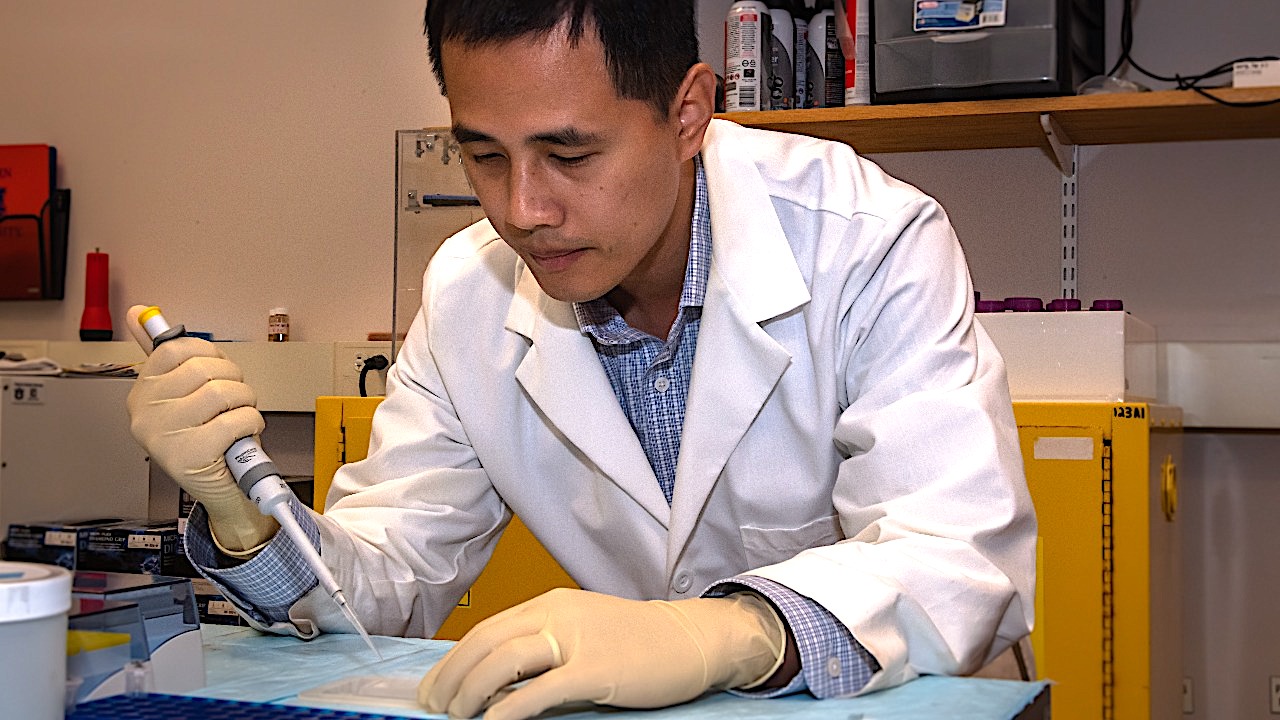NIH awards another $1.9M toward Auburn Engineering’s transformative research into rapid immunodiagnostics
Published: Oct 3, 2024 11:00 AM
By Jeremy Henderson
Pengyu Chen, the Francis Family Associate Professor and Ginn Faculty Achievement Fellow in the Department of Materials Engineering, believes he'll soon be able to immediately unlock the secrets of your immune system with the prick of a finger. The National Institute of Health (NIH) continues to believe it, too.
The institute recently awarded Chen $1.9 million to continue his groundbreaking research on immune system analysis. The five-year grant is an extension of a 2019 NIH Maximizing Investigators’ Research Award (MIRA) for the same amount, which at the time was the Samuel Ginn College of Engineering's largest-ever NIH grant.
Chen’s research team will continue to develop cutting-edge technologies that combine nanomaterial-based sensors with advanced computer algorithms to measure, with just a single drop of blood, key immune proteins and track how immune cells behave and communicate. The innovative approach promises to provide critical insights that could transform the diagnosis and treatment of immune-related diseases like cancer, autoimmune disorders and infections.
“Our new NIH grant represents a significant advancement in our research,” Chen said. “While this grant builds on the foundation of our 2019 MIRA, it is far more than just an extension. We are broadening the scope of our work in profound ways, incorporating AI-assisted technology and novel biosensing platforms to enhance immune profiling and monitoring.”
A key motivation for the project? Accessibility for all, Chen says, “regardless of their geographical or economic situation.”
"By leveraging AI with our nanoplasmonic biosensing platforms, we aim to provide rapid, real-time and highly personalized immune diagnostics at the point of care,” he explains. “This technology could have massive implications—enabling precise, accessible healthcare solutions for populations that are often underserved.”
“It reinforces the importance of pushing the boundaries of what’s possible, not just in technology but in how that technology can be used to address some of the most critical healthcare challenges of our time," he said. Media Contact: , jdh0123@auburn.edu, 334-844-3591



